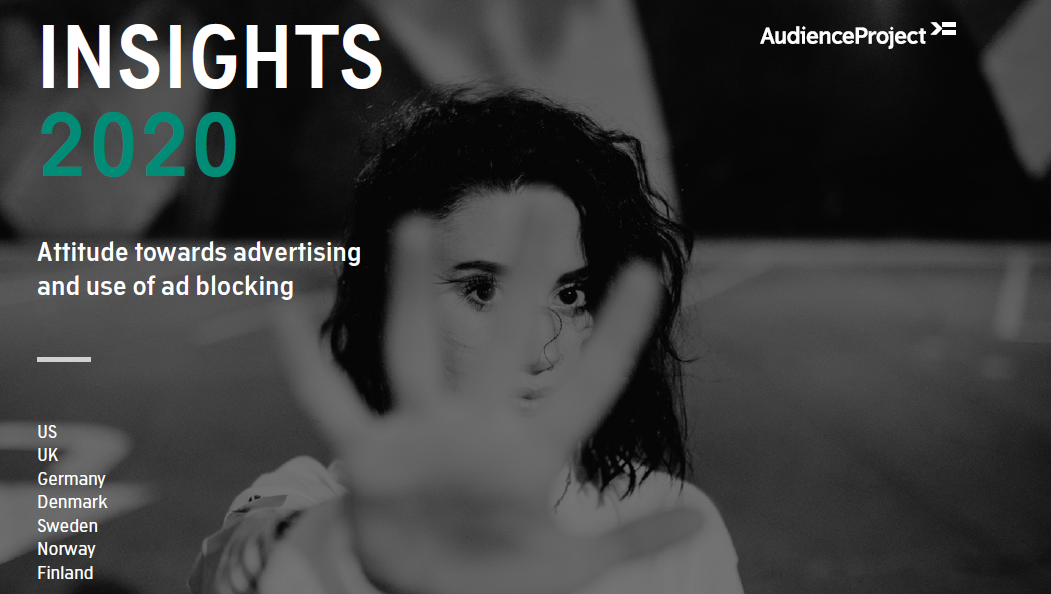Fewer people are annoyed with the ads they are exposed to and that fewer people are using ad blockers, according to a new study.
The study, from Audience Project, study looked into attitudes towards advertising and use of ad blocking in the US, UK, Germany and Nordics, and raises the question if ad blocking has reached its peak.
Despite this, the report indicates that irrelevant ads are still a big issue. The majority finds that the online ads they are exposed to are irrelevant to them, and ad relevance (or the lack of it) remains one of the main reasons for blocking ads.

Key highlights from the study:
- More than half (54%) of Brits have a negative attitude towards ads on websites – decreased from 57% in 2018
- Almost three-quarters (72%) of Brits have a negative attitude towards ads in online video clips – decreased from 74% in 2018
- Ads shown next to relevant and trustworthy content has a positive effect on brand perception for 37% of Brits
- Ads shown next to offensive and/or controversial content has a negative effect on brand perception for 59% of Brits (highest level among surveyed countries)
- 60% of Brits feel that the online ads they receive are irrelevant to them – only 11% feel that they are relevant to them
- 36% of Brits use ad blockers – decreased from 41% in 2018
- British ad blocking users primarily use ad blockers because ‘websites are more manageable without banners’ (70%), and secondly to ‘avoid offensive or irrelevant images/messages’ (50%)
- 15% of sessions on computers in the UK are blocked by ad blockers – decreased from 25% in 2018
- 6% of sessions on mobile in the UK are blocked by ad blockers – decreased from 8% in 2018

Brand perception is increasingly affected by where brands are advertising. More people are positively affected if ads are shown next to relevant content, while more people are negatively affected if ads are shown in non-safe environments.

